During my second year teaching fourth grade, I was looking forward to a meeting with my teacher mentor to discuss feedback from my informal observation/evaluation. With a year under my belt, I felt confident that I had done well. I had planned a lesson that met clear objectives and followed an established workshop model. Unlike my first few observations, my students had followed directions and were well behaved. So, imagine my surprise when I was told my students were "too quiet" – not the feedback I had expected. Through further discussion, I was introduced to the term Discourse, more clearly defined for my situation as "Purposeful Talk."
Traditional Classroom Discourse
Classroom discourse is traditionally described as the language (both oral and written) used by teachers and students in the classroom for the purpose of communication. While the concept of discourse isn’t unique to education, the classroom format has evolved over the years. In a more classical approach, teachers tended to dominate the conversation, eliciting responses that ranged from one to a few words. In a classroom of 25 kids, it wasn’t uncommon to have 20 out of the 25 students to go all day without saying a word.
Classroom Needs Are Changing
Today, discourse takes a different approach. We’ve come to realize that students need to be actively involved in the learning process. In classrooms that promote the value of discourse, students and teachers share responsibility for talking in carefully planned discussion-based lessons. Given opportunities for purposeful talk in the classroom, students practice developing and revising new concepts by explaining, questioning, reflecting, synthesizing, and debating.
Setting a clear purpose for discussion invites all students to think aloud, think critically, and deepen their understanding. With a clear purpose set, classrooms are filled with meaningful academic conversations. When engaging students in purposeful talk, we are creating an environment that incorporates 21st century skills such as collaboration and communication, which helps prepare our students for the real world.
Most teachers recognize the importance of classroom discourse and the benefits of purposeful talk, but time and resources create ongoing challenges for successfully implementing discussion-based lessons. Learning A-Z products give teachers quick, easy access to thousands of useful lessons with clear discourse objectives, so we can focus our time and energy on guiding and mediating exciting classroom discussions.
Raz-Plus Resources to Promote Discourse
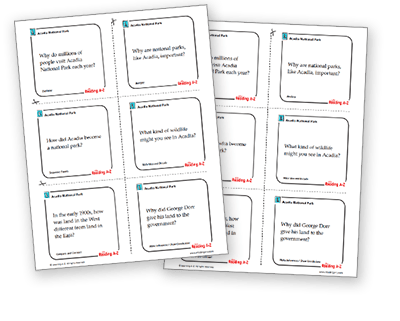
Discussion Cards: Teachers can access Discussion Cards associated with our leveled books. Discussion Cards can inspire small-group conversations to promote higher-order thinking skills. Click on any of our leveled books to view accompanying Discussion Cards, along with many other discourse-enhancing resources.
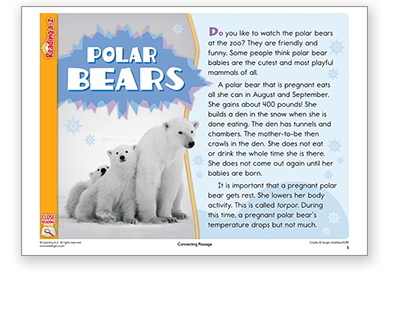
Close Reading Packs and Passages: Lessons have been carefully designed to help students practice collaboration and communication skills while using close reading skills to answer a key text-dependent question.
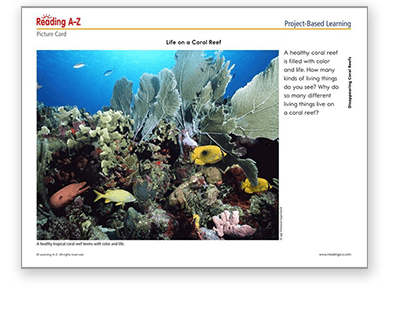
Project-Based Learning Packs: Students will learn to use a variety of skills, including collaboration, communication, and critical thinking, to reach a goal and gain essential language arts and content-area knowledge.
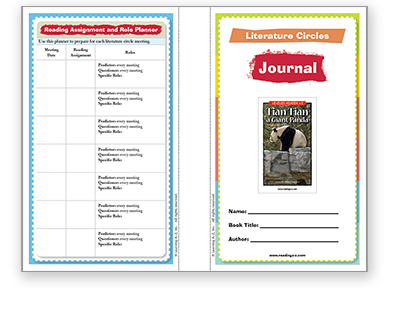
Literature Circles: Teachers use modeling and support resources to help students effectively engage in deep discussions about text. Unique student roles allow each student to play an important part of the discussion.
Science A-Z Resources to Promote Discourse
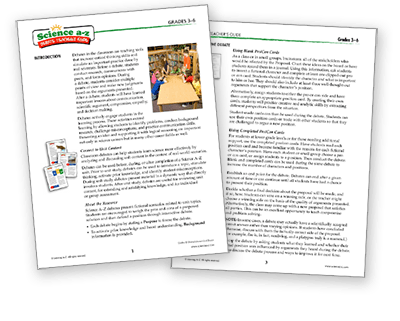
Debates: Students learn to conduct research, form opinions, communicate with peers, consider other points of view, and make new judgments based on arguments supported by evidence.
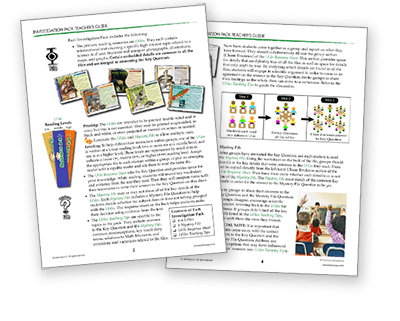
Investigation Packs: Students answer text-dependent questions based on evidence and discussion, while practicing scientific argumentation with peers’ common answers.
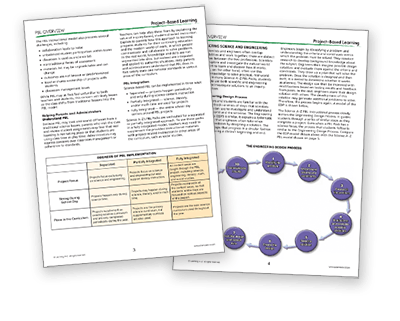
Project-Based Learning Packs: Students work together like real scientists and engineers to conduct research, develop plans, adhere to a schedule, make decisions, and execute their plan.


